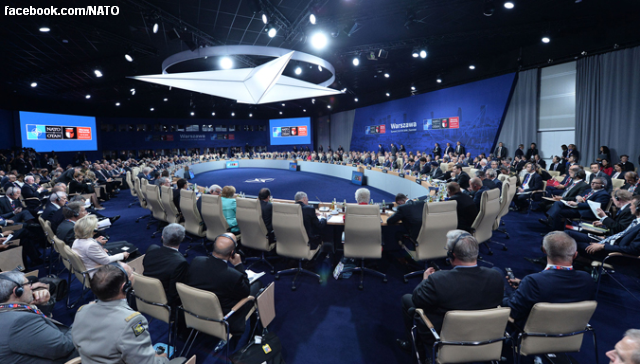Collective Defence, a Challenge Facing NATO
NATO is a source of stability in an unpredictable world, says Secretary General Stoltenberg

Corina Cristea, 09.09.2016, 13:17
The North Atlantic Alliance is a source of stability in an unpredictable world, and Europe and the US are and work together, said the NATO Secretary General Jens Stoltenberg at the end of the recent Alliance summit held in Warsaw. The leaders of the 28 member countries decided to strengthen security on the eastern flank of NATO, including by deploying a multi-national brigade in Romania, four battalions in the Baltic countries and Poland and by transferring the control and coordination of the anti-missile defence shield in Deveselu from the US to NATO. The Director of the Conflict Prevention Centre in Bucharest Iulian Chifu talked on Radio Romania about the conclusions of the summit.
Iulian Chifu: It was a summit that conveyed messages of unity, strength, determination, but also concern for the future and for what is happening in the neighbourhoods of the Alliance. For those who had expected a powerful and discouraging message, like a finger pointed at the potential enemies of the Alliance, we can say that such a message was sent in a very firm tone, quite unimaginable a few years ago. Out of the 139 articles of the final declaration, for instance, half are about Russia, including three or four that actually condemn Russia for its actions in the recent past, such as annexing Crimea or the military aggression in the north of Ukraine. It was indeed a summit which reconfirmed the Allies trust in NATO, which committed the Alliance to some very powerful actions at all levels of the allied defence system, and at the same time projected stability and security beyond NATO borders, with clear reference not only to NATOs allies, but also to its partners, namely Georgia, Ukraine and the Republic of Moldova.
The presidential advisor on national security, General Nicolae Oprisor, has also stressed the importance of the summit, against the current security background, when the Euro-Atlantic area is faced with multiple and diverse risks and challenges, with roots in NATOs neighbourhood:
Nicolae Oprisor: “I am talking about terrorism, cybercrime, migration, instability in the Middle East and North Africa, the situation in Ukraine and more. The decisions made by the heads of state and government at the summit covered and approached in a unitary and coherent manner all the challenges that I mentioned earlier, thus reconfirming the role of the Alliance as a responsible player at world level, focused on meeting its fundamental obligations. And these primarily include collective defence, crisis management and providing security through cooperation.
The Allies agreed in Warsaw to provide enhanced military support to the countries in the Middle East and North Africa, which are targets for Islamic extremism. Focus will be laid, among other things, on the use of NATO surveillance planes in the fight against Daesh, the Islamic State terror group. Also, a new naval mission will be launched in the Mediterranean. The military presence in Afghanistan will be maintained and Afghan security forces will receive financial support until 2020. Radio Romanias correspondent in Jerusalem Dragos Ciocarlan told us more about the decisions made at the NATO summit in Warsaw:
Dragos Ciocarlan: “NATO will start another mission to help prepare and strengthen the capability of the Iraqi army, which is the central player in the fight against Daesh. Also, a monitoring centre will be set up in Tunisia, a country that has become a major recruiting centre for Daesh. The Tunisian special forces will also benefit from support. NATO surveillance planes will provide the data that the US-led coalition against Daesh in Syria and Iraq needs, which is a clear sign in the fight against terrorism. Also, the Alliance will strengthen its cooperation with Jordan and will provide support to the new Libyan government.
NATO also called on Russia to stop supporting the separatists in Ukraine, from a military, political and financial point of view. To Romania, the NATO summit was a success, said the Romanian Foreign Minister Lazar Comanscu, who added that Romania had a special contribution to all the decisions made.
Lazar Comanescu: “The Black Sea area, just like the Baltic Sea and the North Atlantic area, is a region of strategic importance to NATO. All the decisions made, be they about an enhanced ground force or concerning the maritime and air space, benefited from a substantial Romanian contribution.
Bucharest officials say that the recent NATO summit reconfirmed Romanias role as a NATO pillar of security and active player in the region.






























